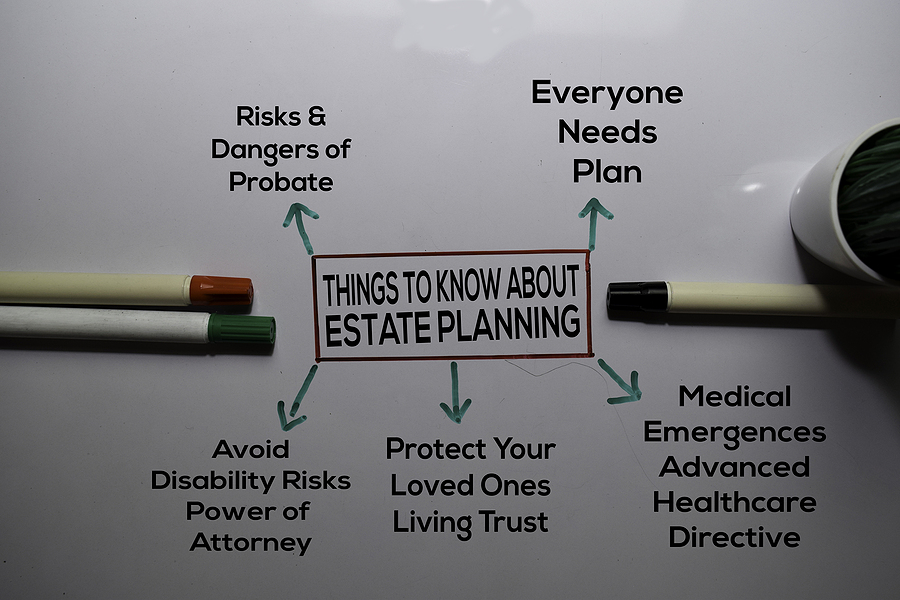Medical emergencies can happen when we least expect them and being unprepared can leave both you and your loved ones in a difficult situation. Creating a solid medical emergency planning process ensures that your healthcare wishes are respected if you’re unable to make decisions yourself.
This type of planning goes beyond just having health insurance—it involves establishing key legal documents, such as advance healthcare directives, to outline your wishes.
In this post, we’ll walk through what medical emergency planning entails, why it’s important, and how having an advanced healthcare directive can give you and your family peace of mind.
What Is Medical Emergency Planning?
Medical emergency planning involves setting up a clear, legally binding plan for what should happen if you experience a medical crisis and cannot make decisions on your own.
This type of planning ensures that your healthcare preferences are followed, and it relieves your loved ones of having to make difficult choices without knowing what you would want.
It includes several important elements:
Naming a Healthcare Proxy
This is the person you trust to make healthcare decisions on your behalf if you become incapacitated.
Creating Advance Healthcare Directives
These legal documents outline your medical preferences, from life-sustaining treatments to end-of-life care.
Emergency Contact Information
Ensuring that your medical providers and loved ones know who to contact during a crisis.
Taking the time to prepare for medical emergencies ensures that your healthcare is handled in the way you choose, even if you’re unable to speak for yourself.
What Are Advance Healthcare Directives?
Advance healthcare directives are legal documents that spell out your healthcare wishes in the event you cannot communicate them yourself. This can include instructions for life-saving
procedures, pain management, organ donation, and end-of-life care.
There are typically two main types of advance healthcare directives:
- Living Will: A document that details your preferences for medical care, such as resuscitation or mechanical ventilation, in situations where you may be unconscious or terminally ill.
- Durable Power of Attorney for Healthcare: This allows you to appoint a trusted person (a healthcare proxy) to make medical decisions on your behalf.
By having advanced healthcare directives in place, you remove the burden from your family to make tough decisions during emotional and stressful times. These directives also help prevent disagreements between family members about what should happen with your care.
Why Is Medical Emergency Planning Important?
Many people avoid thinking about medical emergencies, but planning is crucial for several reasons:
Control Over Your Medical Care
Medical emergency planning allows you to have a say in your treatment, even when you’re unable to communicate. You can specify the type of care you want, and this ensures that your wishes are respected.
Eases the Burden on Loved Ones
Without a medical emergency plan, your family may be left guessing about what you would want. This can create stress and conflict during an already challenging time. Advance healthcare directives provide clear instructions, giving your family guidance and peace of mind.
Prevents Unwanted Procedures
Without proper planning, medical providers may default to performing all possible life-saving measures, even if they go against your wishes. A living will allows you to dictate whether you want certain treatments, such as resuscitation or life support.
Legal Protection
Advance healthcare directives ensure that your medical decisions are legally binding. This helps prevent disputes between healthcare providers and family members about your treatment.
How to Start Medical Emergency Planning
Starting your medical emergency planning is easier than you may think. Here are the steps you can take to ensure that your wishes are clearly documented:
Create an Advance Healthcare Directive
Work with an estate planning attorney to draft a living will and appoint a healthcare proxy through a durable power of attorney for healthcare. This will make your wishes clear and legally binding.
Talk to Your Loved Ones
Discuss your medical preferences with your family and chosen healthcare proxy. They must understand your wishes and feel comfortable carrying out your decisions.
Review and Update Your Plan
Medical conditions and preferences can change over time. Make sure to regularly review and update your medical emergency plan to ensure that it reflects your current wishes.
Keep Documents Accessible
Ensure that your healthcare proxy, family members, and medical providers have access to your advanced healthcare directives. This will make it easier for them to act quickly in an emergency.
Work With an Experienced Estate Planning Attorney
Medical emergency planning is an essential part of protecting your future and your health. By preparing advance healthcare directives, you can make sure your medical care aligns with your values and wishes, no matter what happens.
Ready to get started on your medical emergency planning? Contact the Law Office of Andrew Fesler today to learn how we can help you set up advanced healthcare directives and ensure your healthcare preferences are honored.



